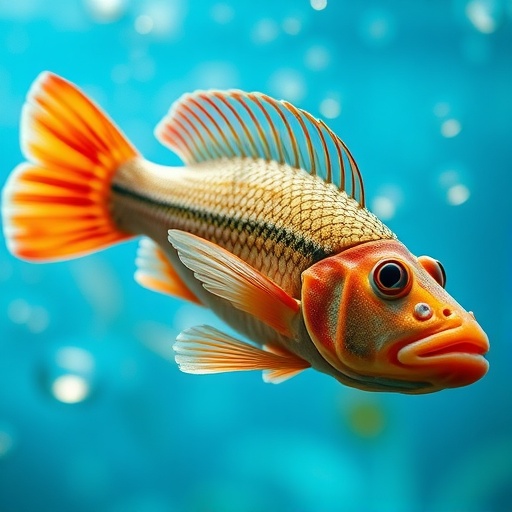Phytobiotics, a term representing plant-derived feeding additives, are rapidly gaining prominence in aquaculture, particularly in the cultivation of finfish and shellfish. The comprehensive review led by Rahul Sandeep, T., Sravya, M.V.N., and Simhachalam, G. sheds light on the transformative potential these natural substances hold for the aquatic industry. In the quest for sustainable aquaculture practices, phytobiotics emerge as a promising alternative to conventional antibiotics and synthetic growth promoters, portraying a shift towards a more environmentally conscious paradigm.
The detrimental impact of antibiotic usage in fish farming has raised urgent concerns regarding antibiotic resistance, which poses significant health risks to both aquatic ecosystems and human populations. This systematic review compiles extensive research, illustrating the myriad benefits of incorporating phytobiotics into aquaculture diets. Among the primary advantages highlighted are their role in enhancing growth performance, improving feed efficiency, and fostering immunity against various pathogens. The authors emphasize that unlike traditional antibiotics, which can have lingering effects, phytobiotics appear to promote health without fostering resistance in microbial populations.
Phytobiotics consist of a wide array of botanicals, including herbs, spices, essential oils, and extracts, each possessing unique bioactive compounds. These compounds play crucial roles in modulating the gut microbiota of fish, promoting a balanced intestinal ecosystem that enhances nutrient absorption. By optimizing the digestive process, phytobiotics can lead to improved growth rates and biomass accumulation in various species of finfish and shellfish. Furthermore, their implementation may result in reduced reliance on commercial feeds, thereby lowering overall production costs.
Research indicates that the use of phytobiotics can significantly enhance the immune response in aquatic species. The review delineates how phytobiotic compounds can stimulate specific immune pathways, increasing resistance to diseases such as vibriosis and columnaris. In addition to bolstering health, these natural additives may also contribute to improved product quality, influencing sensory characteristics such as flavor, texture, and color—a crucial aspect for end consumers and marketability.
The use of phytobiotics in aquaculture is not without its challenges. Variability in the efficacy of different plant materials due to factors such as extraction methods, dosage, and species specificity necessitates rigorous scientific inquiry. The review underscores the importance of standardized protocols for evaluating the biological activity of phytobiotics. Furthermore, the integration of these additives into aquaculture must be approached with considerations for regional availability and traditional dietary habits of target species, ensuring that they complement existing feeding practices.
Moreover, the relationship between phytobiotics and environmental sustainability is of paramount importance. The review posits that employing these natural additives can lead to more sustainable farming practices by diminishing the ecological footprint of aquaculture. By reducing antibiotic use, phytobiotics could mitigate the risk of contamination in aquatic environments, aligning with global efforts to safeguard biodiversity and ecosystem health. These insights bolster the case for policymakers and industry stakeholders to promote broader adoption of phytobiotics in aquaculture systems worldwide.
Consumer awareness around health and sustainability continues to surge, driving market demand for responsibly sourced seafood. The systematic review serves as an essential resource for aquaculture practitioners, offering insights into how the implementation of phytobiotics can enhance health and welfare standards within the industry. As consumers increasingly prioritize health-conscious and environmentally friendly products, the role of phytobiotics could be pivotal in meeting these evolving market demands.
The feasibility of incorporating phytobiotics into various aquaculture systems also presents broader implications. Given the significant diversity of aquatic organisms and the unique nutritional requirements of each species, future research into tailored phytobiotic formulations could revolutionize feeding strategies. Researchers are urged to conduct trials across different environments and species to establish a robust scientific foundation that supports the widespread adoption of these innovative feed additives.
Economic analyses within the review indicate that the use of phytobiotics is not merely an ecological consideration but also a viable strategy for enhancing profitability in aquaculture. Improved growth rates and disease resistance lead to faster production cycles and higher yields, driving down costs and aligning with commercial best practices. As such, integrating phytobiotics could be a win-win for both the environment and the aquaculture industry’s bottom line.
Despite the promising outlook for phytobiotics in aquaculture, the review emphasizes that further research is essential to understand their long-term effects fully. Continued trials and studies will elucidate the optimal formulations, dosages, and application methods necessary to maximize benefits. This ongoing investigation will also clarify the interactions between phytobiotics and various environmental stressors, further delineating their role in sustainable aquaculture.
Networking among researchers, practitioners, and policymakers will be crucial to advancing the application of phytobiotics in the aquaculture sector. By fostering collaborations and sharing findings on best practices, stakeholders can accelerate the transition towards more sustainable techniques. Educational initiatives can also empower farmers and aquaculture professionals to stay informed about the latest developments in phytobiotic research, optimizing their operations for the benefit of public health and environmental integrity.
As the discourse surrounding sustainable agriculture evolves, the findings from the review by Sandeep et al. offer a beacon of hope. Phytobiotics hold the potential to revolutionize aquaculture, steering the industry towards a healthier, more sustainable future. With increasing research and investment in this field, the forthcoming years may witness a paradigm shift in how aquaculture is conducted, aligned closely with the principles of ecological stewardship and consumer demand for integrity in food systems.
In summary, phytobiotics represent a promising avenue for enhancing aquaculture practices. With the knowledge provided through this systematic review, the aquaculture industry stands at a crucial crossroads, where informed decisions can lead to unprecedented advancements in sustainability, health, and profitability.
Subject of Research: The role of phytobiotics in enhancing finfish and shellfish aquaculture.
Article Title: Phytobiotics in finfish and shellfish: a systematic review.
Article References:
Rahul Sandeep, T., Sravya, M.V.N. & Simhachalam, G. Phytobiotics in finfish and shellfish: a systematic review.
Discov Anim 2, 74 (2025). https://doi.org/10.1007/s44338-025-00098-3
Image Credits: AI Generated
DOI: 10.1007/s44338-025-00098-3
Keywords: Phytobiotics, aquaculture, finfish, shellfish, sustainable practices, antibiotic resistance, feed efficiency, immune response, environmental sustainability.




